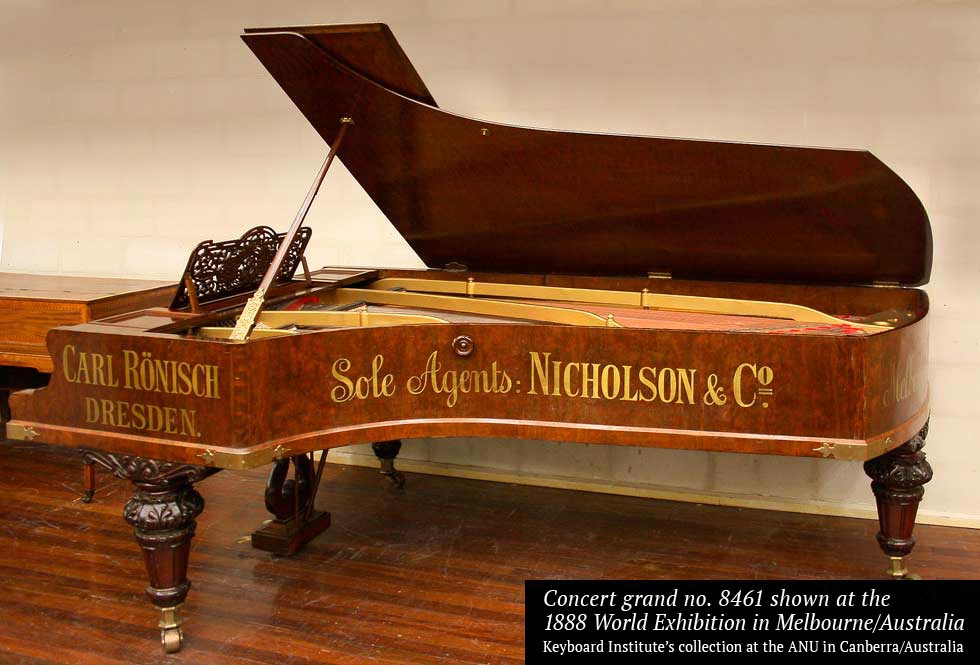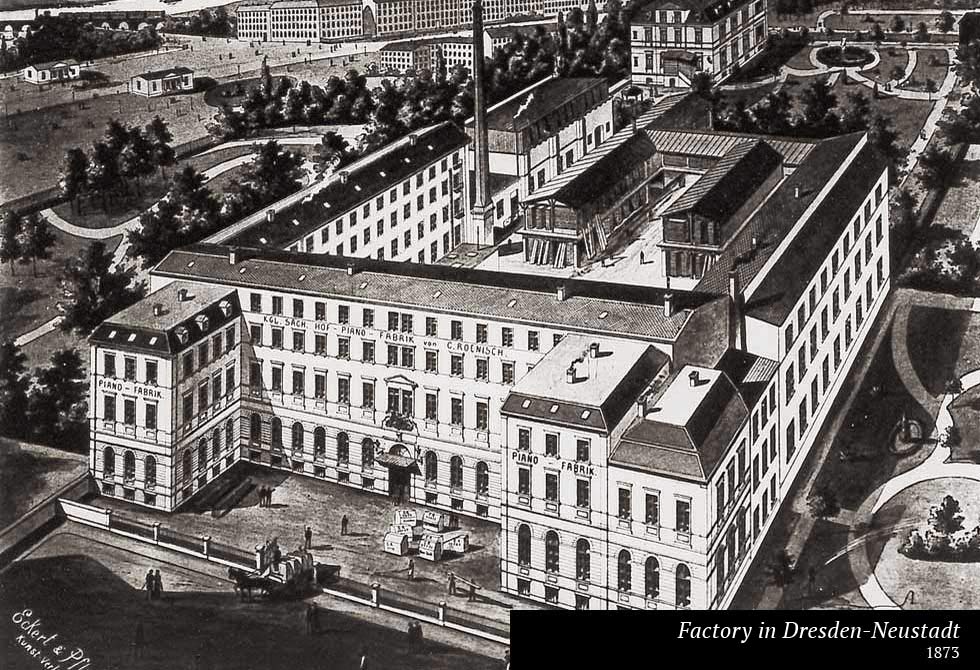
A name
that spans the centuries.
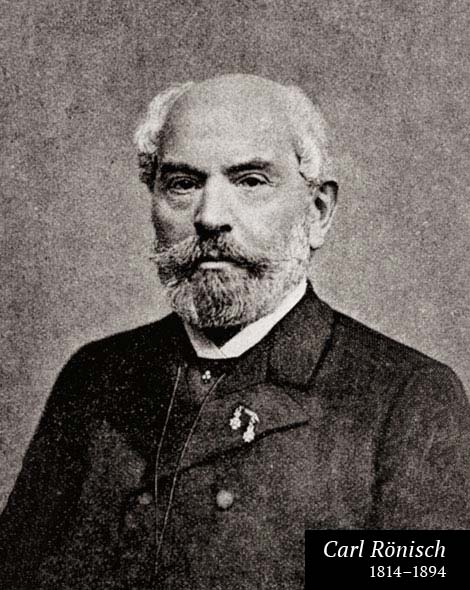
1845. The beginning.
Early in 1845, Carl Rönisch started building pianos in his own workshop, and thus the great Rönisch Piano was born. Company's philosophy: fine tone quality by rock solid, durable construction.
Carl Rönisch produced the first baby grand piano in Saxony in 1857 and after having delivered three grand pianos to the court of the King of Saxony, he was named Official Purveyor to the Court in 1859.
After two moves to larger workshops, a small factory was established in 1862. The company had meanwhile grown to 60 workers. The fame of the Rönisch brand had spread beyond the regional borders, and due to the growing demand new business contacts were established. The main markets at that time were Russia, Sweden, England, Spain and Portugal.
In 1866, he had the epoch-making idea of using a full cast-iron plate in the piano. This frame had five struts and fully covered the pin-block, which allowed for the first time a high tension scale. This revolutionary invention was soon adopted by virtually every piano maker and remains in universal use today providing power, projection, sustain and sonority in the modern piano.
The building of a larger factory was required by continuously growing demand for Rönisch pianos. In 1873, the production started at the new factory in Dresden-Neustadt.
Johann Carl Gottlieb Rönisch was born on November 28th, 1814 into a poor family in Goldberg Silesia.
At the age of 10, he began work as an apprentice in a machine shop and learned the trades of mechanic, joiner and turner.
Between the age of 16 and 20 he learnt how to build pianos with the well-known piano maker Hänel in the City of Naumburg, which is close to Leipzig.
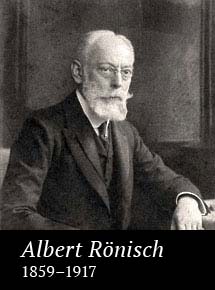
In late 1834, Carl Rönisch gained further experience and knowledge as a mechanic in a spinning machines factory in Goldberg and in Vienna Austria.
Then, in 1843, at the age of 29, Carl Rönisch returned to the piano industry and was employed as a maker of piano instruments in Löbau Saxony. From there, he moved to Dresden, the capital of Saxony and became foreman in the "Rosenkranz" piano factory.
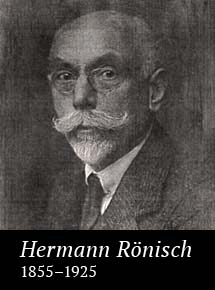
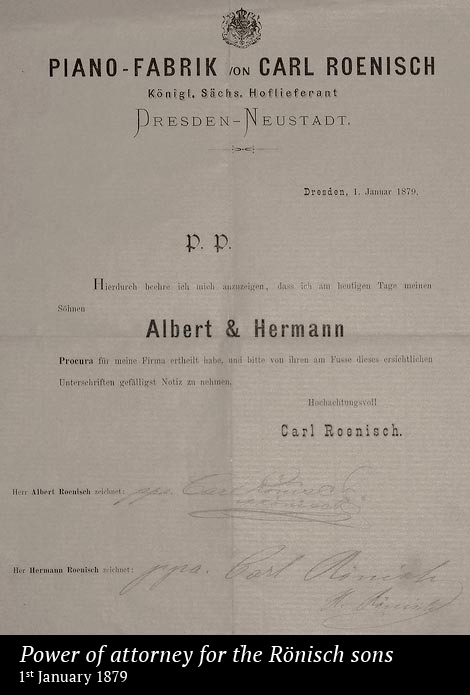
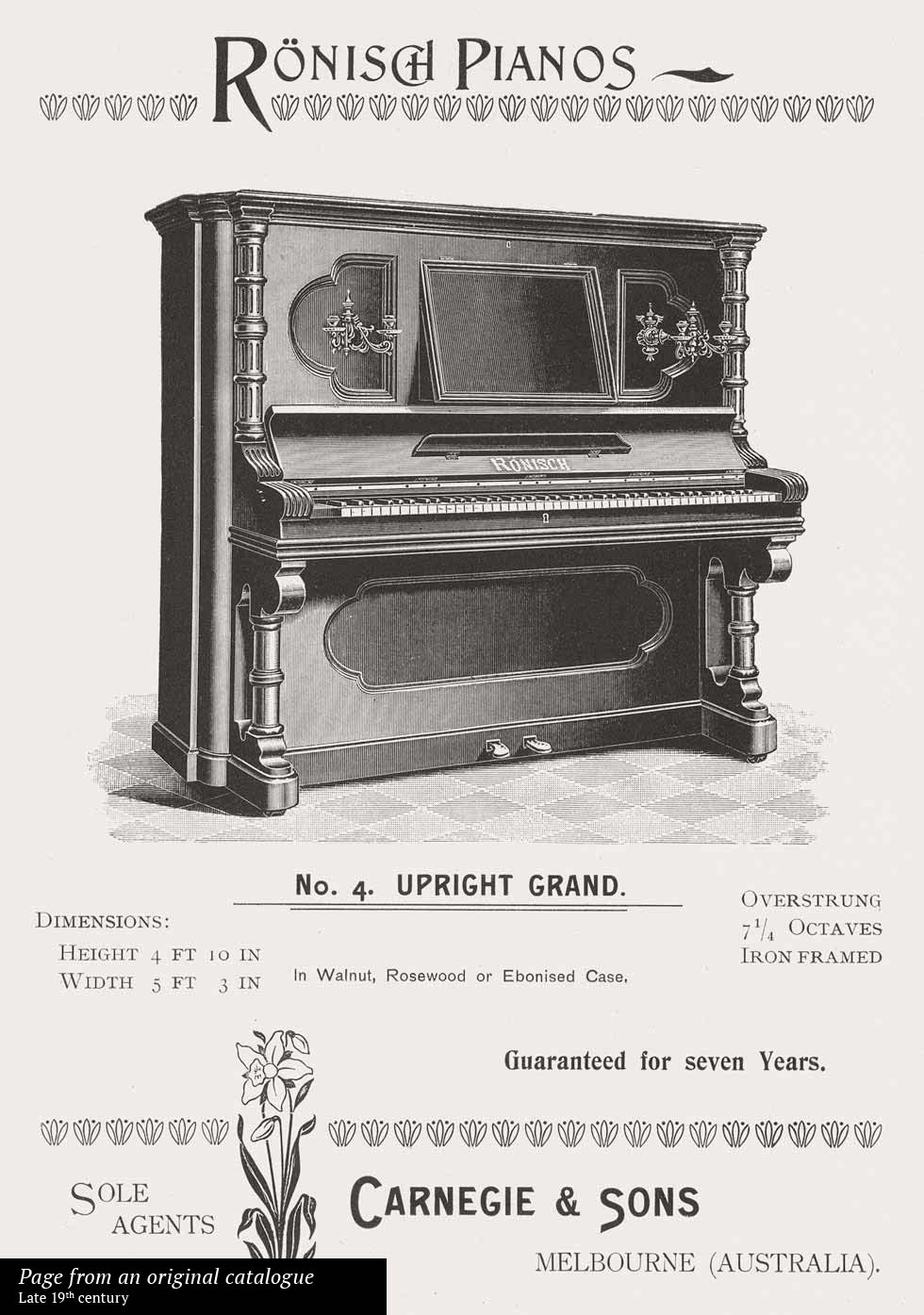
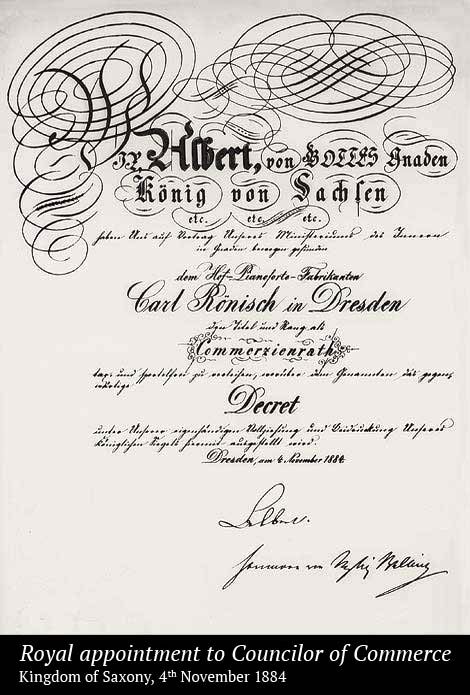
Carl Rönisch was one of the first German manufacturers to export overseas. Rönisch instruments were held in high esteem in Southern Africa, California, Mexico, Australia, the East Indies, and in all of the English colonies. Rönisch won gold medals in the world exhibitions in Sydney 1979 and Amsterdam 1883.
Rönisch was awarded the first prize for its extraordinary grand in the world exhibition in Melbourne 1888. Today, this Rönisch Concert Grand with the serial number 8461 can be admired at the Australian National University of Canberra (ANU). As part of Australia's musical history it is the centerpiece of the Keyboard Institute's collection at the School of Music.
In 1884, Carl Rönisch was appointed Royal Councilor of Commerce; this was followed by the appointment as Royal Purveyor to the Court of Sweden and Norway in 1890.
Carl Rönisch died in 1894 at the age of 80. At that time, his factory was producing 1500 instruments per year and employed 250 people. The management of the company was taken over by his sons Albert as the business manager and Hermann as the production manager.
Rönisch won again gold medals in the world exhibition in Chicago 1893 and in Paris 1900. In 1898, the Carl Rönisch's sons established a branch in St. Petersburg Russia with an annual production of 1000 instruments.
